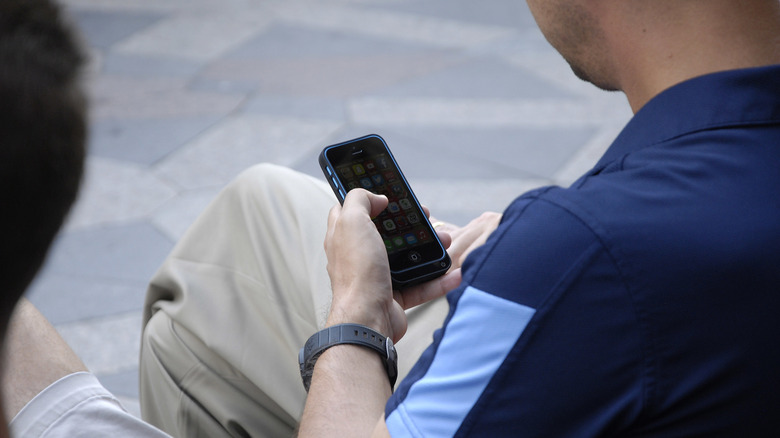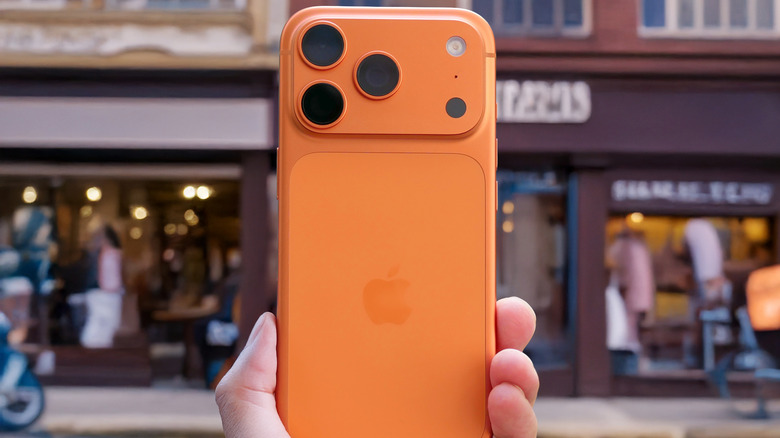London Thieves Will Return Your Phone If It's Android Instead Of iPhone
"Don't want no Samsung," a London phone thief told Sam, after a group of men stopped him in south London in January, and took his phone, camera, and beanie. According to London Centric, the men started running, but the one who grabbed the phone stopped to return the handset to the surprised victim. Sam's story isn't unique, as other Android users in London were treated similarly after thieves took their devices. The outlet offers a few additional examples of thieves dropping stolen Android handsets upon realizing they were not iPhones. Interestingly, in the comment section of the story, a user named Sarah said they had their older Pixel phone stolen twice and dropped twice.
London Centric explains that the UK phone market is split almost evenly between iPhone and Android. Statistically, one would expect random phone thefts to impact iPhone and Android users similarly. The number of stolen handsets would be split evenly between the two competing platforms. That's not what's happening in London, as thieves prefer the iPhone over Android. Last month, the BBC reported that a tracked stolen iPhone led to an investigation that discovered a massive smartphone smuggling ring authorities believe was responsible for exporting 40% of the phones stolen in London, or about 40,000 devices that are sent to China every year. In July, The Guardian reported that two-fifths of Europe's mobile phone thefts take place in the UK, with London being the major hub. Data from the Metropolitan Police showed that about 80,000 phones were stolen in the capital last year, with iPhones being the more frequent target.
Why thieves target iPhones over Android
It's not easier to hack an iPhone than Android. Apple and Google have both improved the anti-theft protections of iOS and Android. Features like Stolen Device Protection (iPhone) and Identity Check (Android) make it almost impossible to change key security settings on a device without biometrics. Still, a locked, unusable iPhone or Android device can be sold for parts.
iPhones have a higher resale value than Android, as evidenced by several market studies in recent years. European used-iPhone website Swappie noted in a report that iPhones hold "significantly higher resale value" than competitors. The longer software update support and better build quality help explain why iPhones sell better in the second-hand market than Android devices. A BankMyCell study covering phones released in 2021 and 2022 showed that an iPhone loses a yearly average of 14.80% of its original trade-in value compared to 32.18% for Android. After four years, iPhones lose 47.49% of their initial buyback value. Flagship Android phones lose nearly 80%. A 2023 report from trade-in comparison site SellCell shows the "iPhone undeniably holds its value better than any other handset." SellCell analyzed the resale value for iPhone and Android phones sold between 2015 and 2022. The average iPhone depreciation was 68.8% in December 2022 compared to 84.2% for Samsung and 89.5% for Google Pixels.
In the U.K., a 2023 MusicMagpie report looking at smartphone trade-in data for the previous 36 months showed that the iPhone lost an average of 46% of its initial value in the first 12 months, compared to 68% for Samsung. A Secondary Market report last week also said that the iPhone has better long-term value retention than Android phones (including foldable flagships), citing new data from Compare and Recycle.

